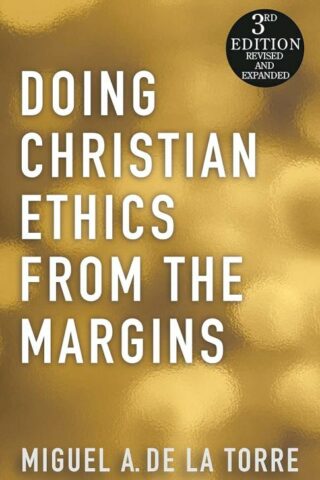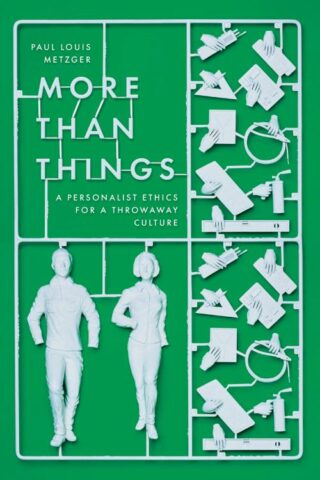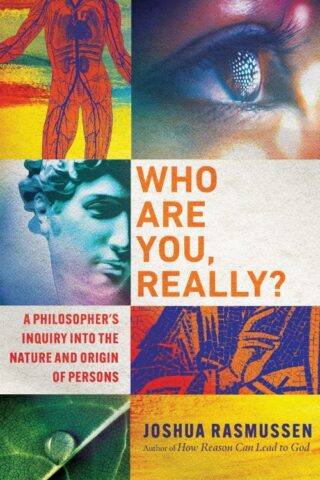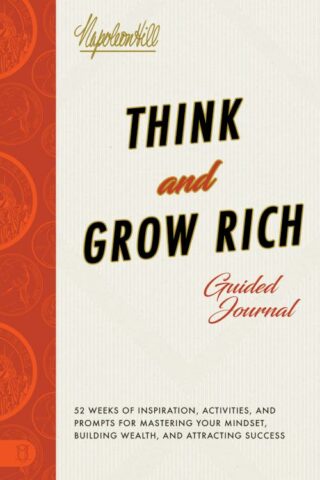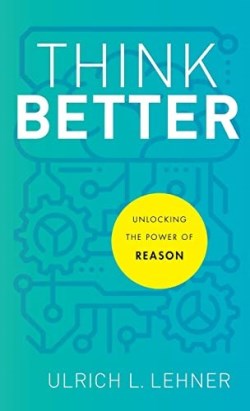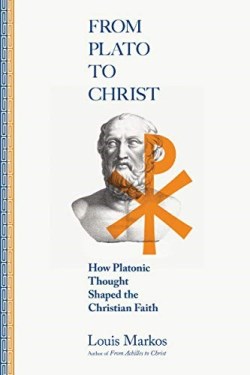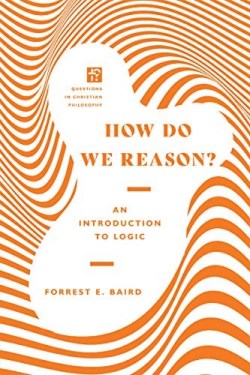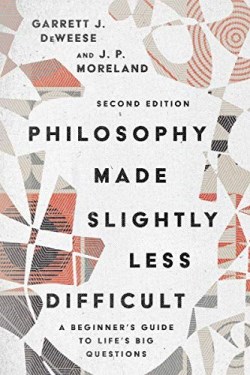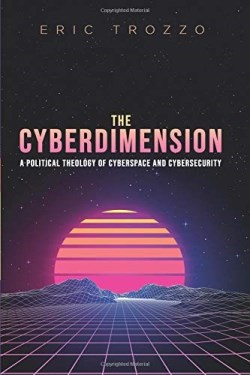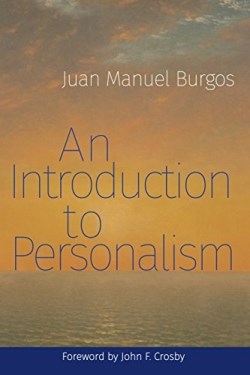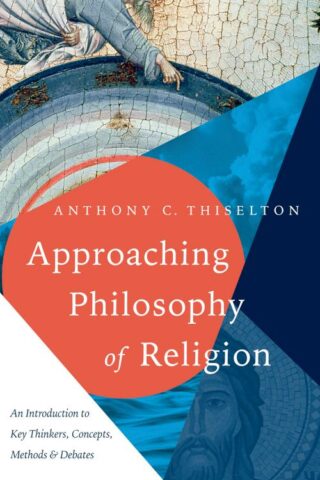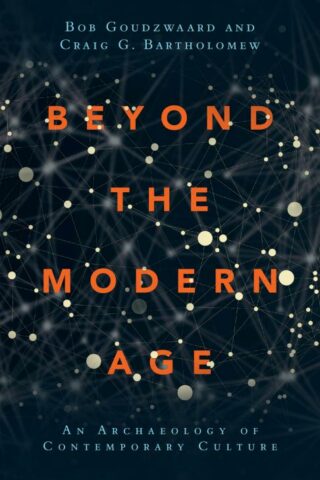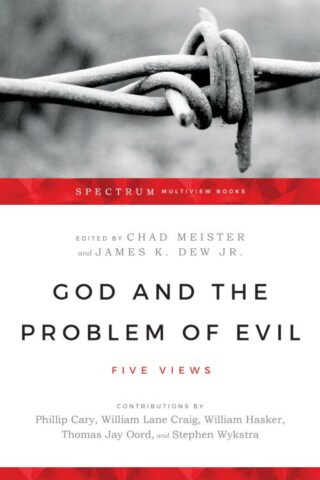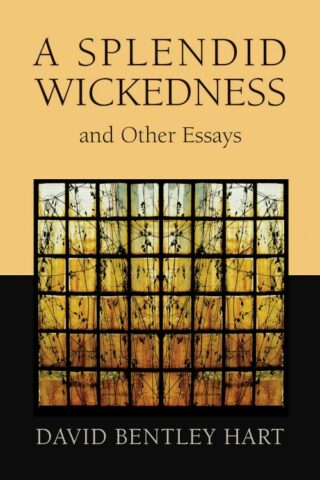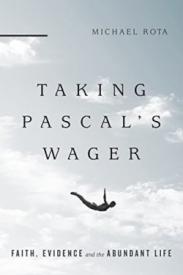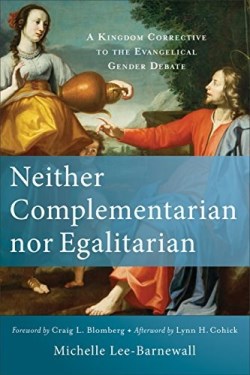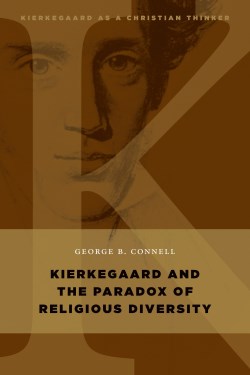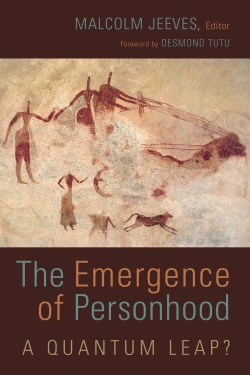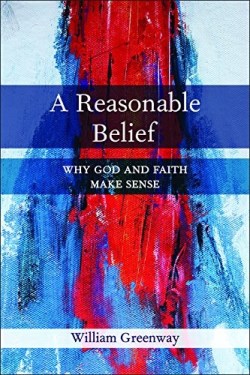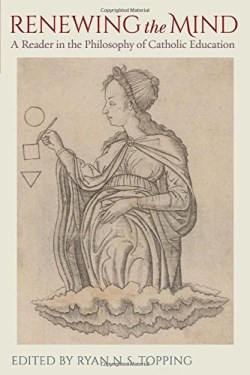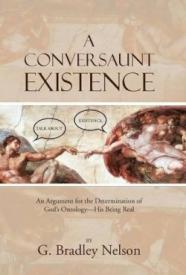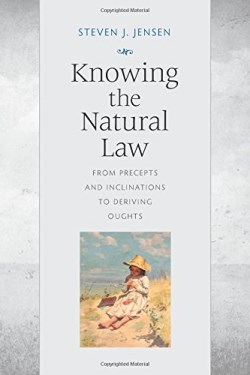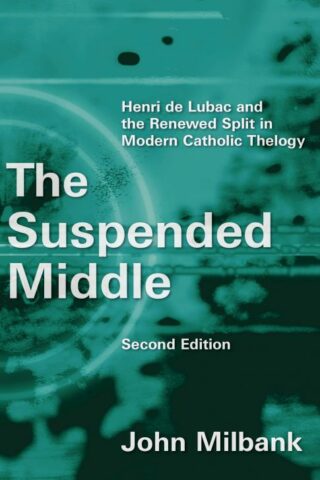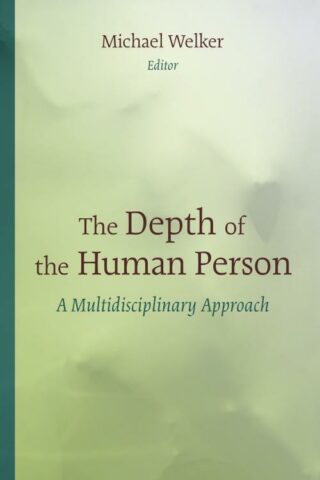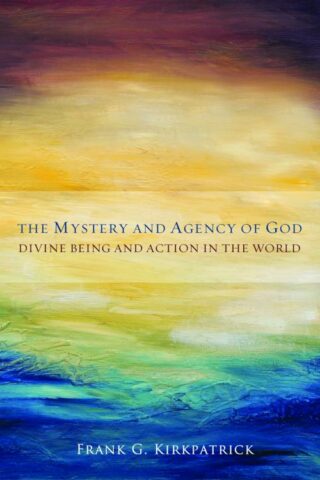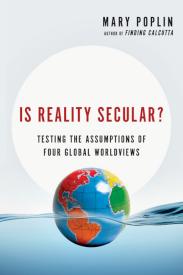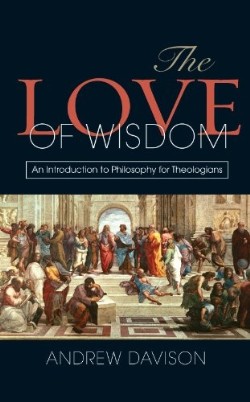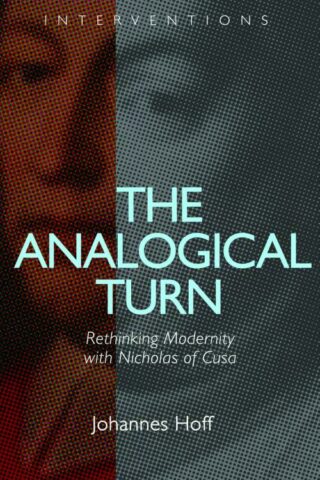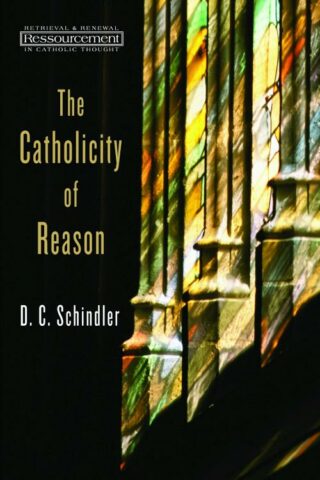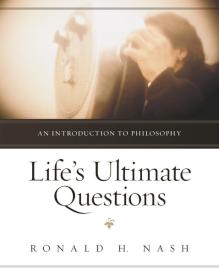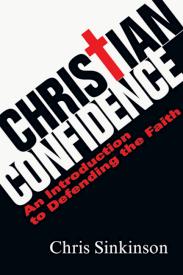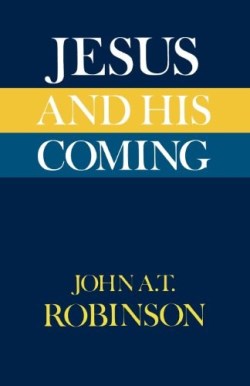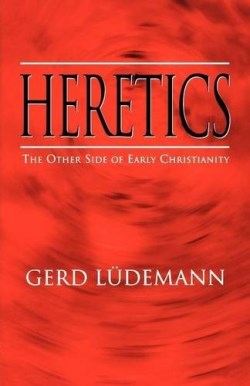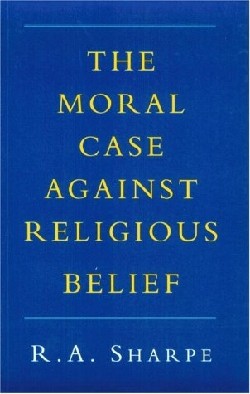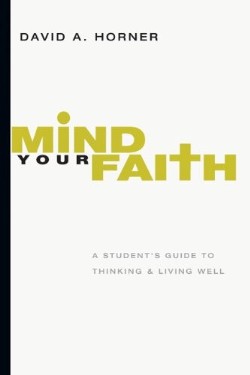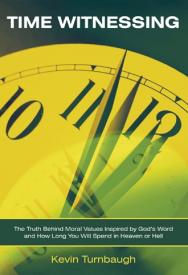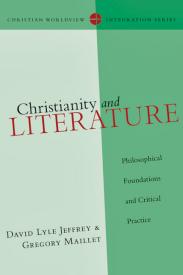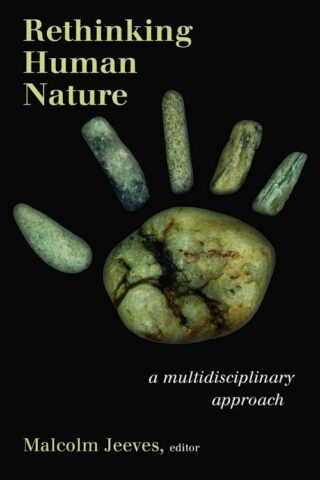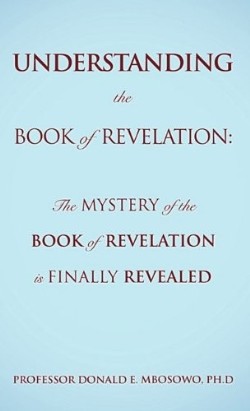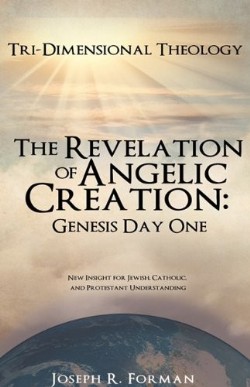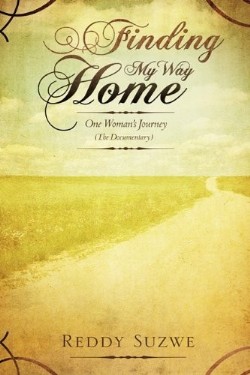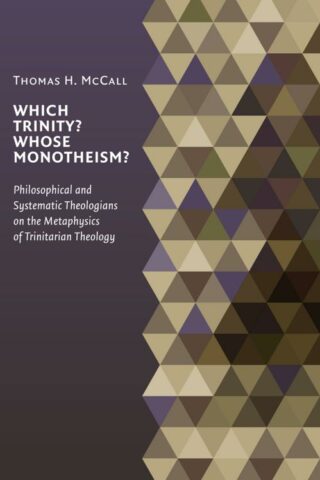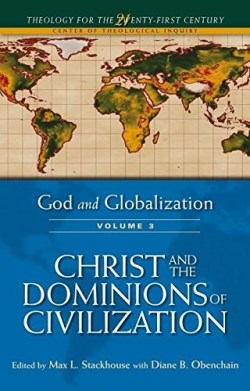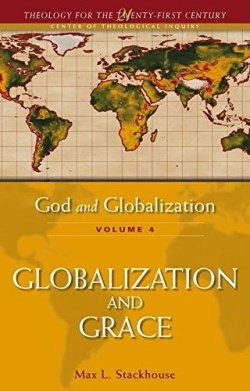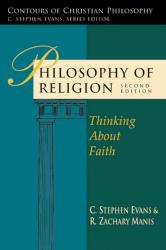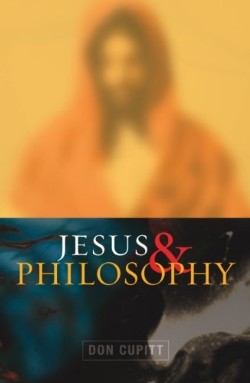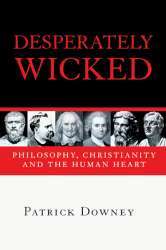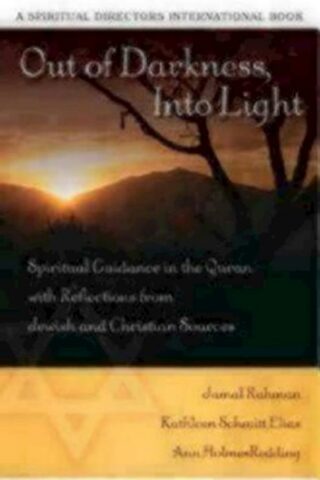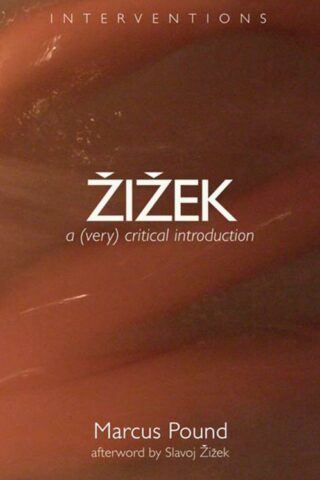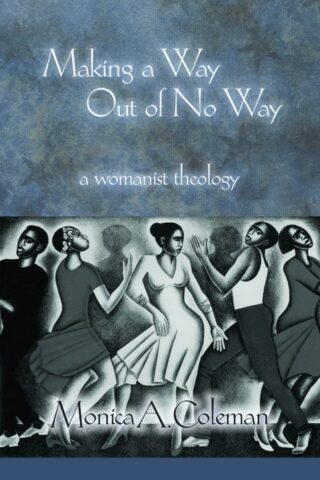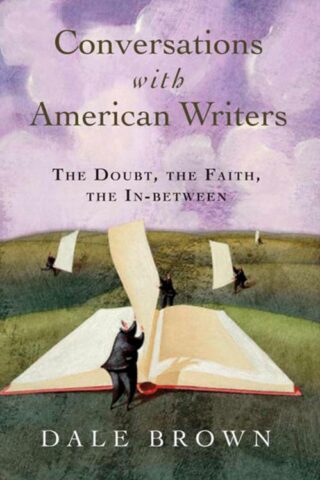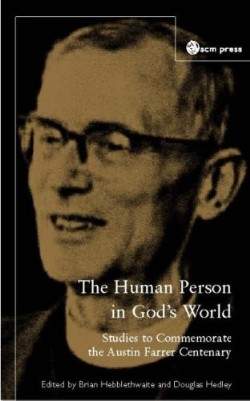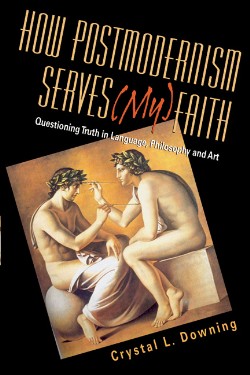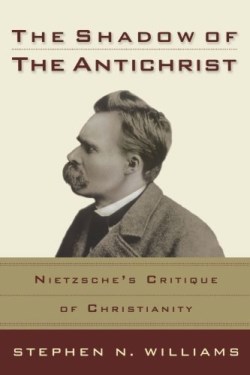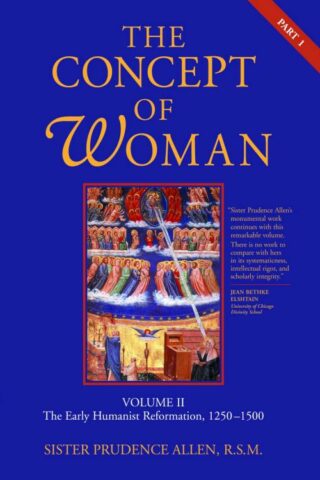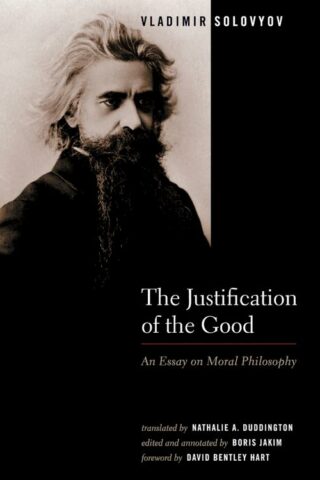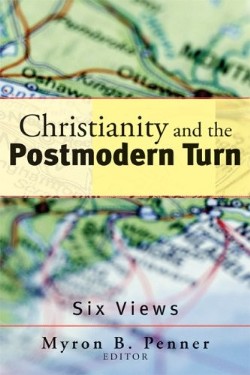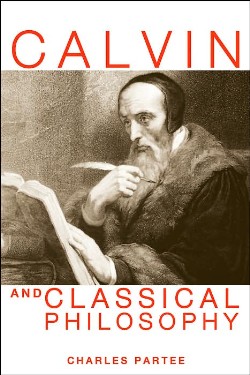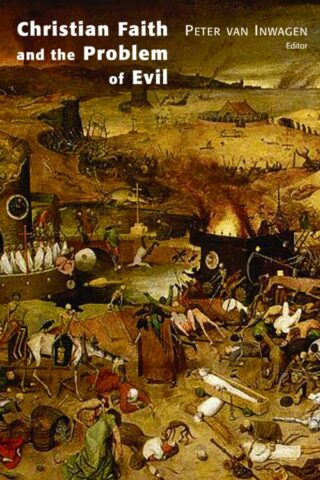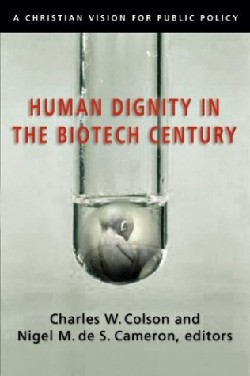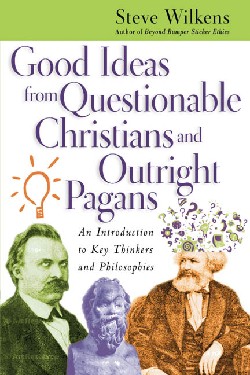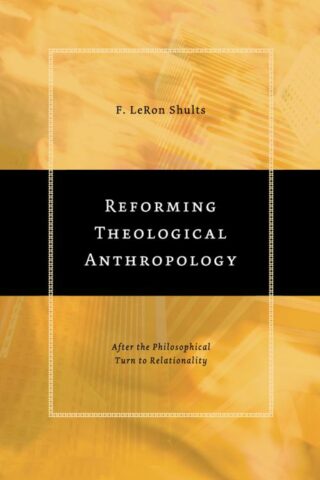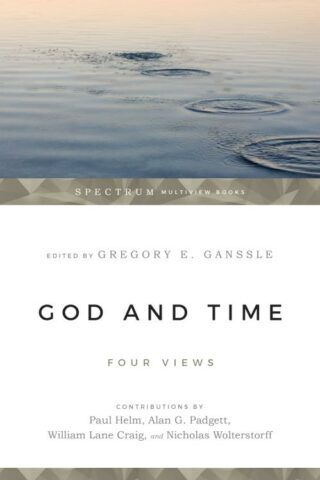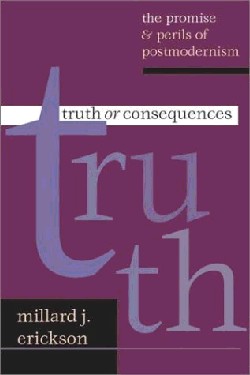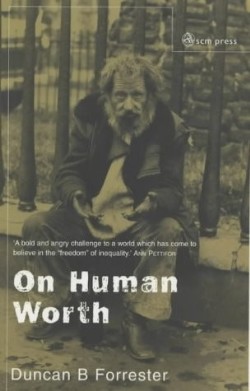Philosophy
Showing 1–75 of 96 results
-
Doing Christian Ethics From The Margins (Revised)
$45.00Add to cartIn this revised edition of an established classroom text, De La Torre furthers his argument that the pain and suffering of people who have been marginalized continues to inform a perspective that holds a greater grasp of reality than those who are more privileged by power and profit. He continues the method of theory and case studies from earlier editions, updating the cases for the 3rd edition. In Part IV, the chapter entitled “Private Property” that appeared in the 2nd edition has been removed in the 3rd edition. Also in that part, the chapters on affirmative action and sexism have been re-ordered so that the chapter entitled “Affirmative Action” is the last chapter before the conclusion. In the 3rd edition, there is a fuller conclusion than the 2nd edition’s epilogue.
-
More Than Things
$48.00Add to cartWe live in a culture of commodification.
People are too often defined by what they do or own; they’re treated as means to an end or cogs in a machine. What goes missing is a deep sense of personhood–the belief that all humans are unique subjects with inherent worth and the right to self-determination in authentic communion with others.
In a world dominated by things, Paul Louis Metzger argues, we must work hard to account for one another’s personhood. We need to cultivate relational structures that honor every human’s dignity in vital interpersonal community. The theological and philosophical framework known as personalism can help guide us toward such a culture. Drawing from a wide range of thought leaders, including Martin Luther King Jr. and Pope John Paul II, Metzger presents a personalist moral vision founded on the Christian ideals of faith, hope, and love. He demonstrates how this moral compass can help us navigate a pluralistic world by applying it to a variety of pressing ethical issues, including abortion, genetic engineering, immigration, drone warfare, and more.
Ultimately human personhood begins with the personal, triune God, who invites us to live more fully as human beings. When we refuse to reduce our fellow humans–and ourselves–to mere abstractions or objects, we follow the example of Jesus in honoring the value of every person and of creaturely life as a whole.
-
Who Are You Really
$30.00Add to cartWhat does it mean to be human? What is a person? Where did we come from?
Many answers have been offered throughout history in response to these perennial questions, including those from biological, anthropological, sociological, political, and theological approaches. And yet the questions remain.
Philosopher Joshua Rasmussen offers his own step-by-step examination into the fundamental nature and ultimate origin of persons. Using accessible language and clear logic, he argues that the answer to the question of what it means to be a person sheds light not only on our own nature but also on the existence of the one who gave us life.
-
Think And Grow Rich Guided Journal
$27.95Add to cartA GUIDED JOURNAL FOR ESTABLISHING EFFECTIVE MENTAL HABITS
Napoleon Hill’s book Think and Grow Rich has sold more than 80 million copies since it was published in 1937. His principles and insights have been tested and proven successful by millions of people worldwide. With this companion journal, you will discover a new way to implement the 17 success fundamentals that form Hill’s philosophy of personal achievement.
Each success principle is deconstructed into its component attributes so that you can focus on building one new habit each week. Action prompts, journaling activities, worksheets, and bonus resources will enable both new and longtime practitioners of Hill’s Science of Personal Achievement to attain heightened levels of self-mastery and accomplish their biggest goals.
Contents include:
*Journaling prompts for cultivating self-awareness, faith, and purpose
*Guidance for turning fear and failure into stepping-stones to success
*Activities for strengthening personal initiative, decisiveness, and accurate thinking
*Worksheets for enhancing concentration, imagination, and a positive mindset
*Templates for budgeting time and moneyWith this powerful, practical new format, anyone can apply the 17 principles of individual achievement in their own life and enjoy the success, happiness, and peace of mind that result when you Think and Grow Rich!
-
From Plato To Christ
$32.00Add to cartWhat does Plato have to do with the Christian faith?
Quite a bit, it turns out. In ways that might surprise us, Christians throughout the history of the church and even today have inherited aspects of the ancient Greek philosophy of Plato, who was both Socrates’s student and Aristotle’s teacher. To help us understand the influence of Platonic thought on the Christian faith, Louis Markos offers careful readings of some of Plato’s best-known texts and then traces the ways that his work shaped the faith of some of Christianity’s most beloved theologians, including Gregory of Nyssa, Augustine, Dante, and C. S. Lewis. With Markos’s guidance, readers can ascend to a true understanding of Plato’s influence on the faith.
-
How Do We Reason
$26.00Add to cartHow do we think? What does a faithful use of logic look like?
Without even pausing to think about it, we exercise our capacity for rational thought. But how exactly does logic work? What makes some arguments valid and others not? In this Questions in Christian Philosophy volume, philosopher Forrest Baird offers an introduction to logic. He considers the basic building blocks of human reason, including types of arguments, fallacies, syllogisms, symbols, and proofs, all of which are demonstrated with exercises for students throughout. In addition, he reflects on the relationship between the use of reason and the Christian faith. With this academic but accessible primer, readers will be introduced to the basics of logic–and encouraged to reason better.
-
Philosophy Made Slightly Less Difficult Second Edition
$26.00Add to cartPhilosophy is for everyone. We think philosophically whenever we ask life’s big questions:
*What is real?
*How do we know what we know?
*What is the right thing to do?
*What does it mean to be human?
*How should we view science and its claims?
*Why should we believe that God exists?Philosophy is thinking critically about questions that matter. But many people find philosophy intimidating, so they never discover how invaluable it can be in engaging ideas, culture, and even their faith. Garrett DeWeese and J. P. Moreland understand these challenges, and in this book they apply their decades of teaching experience to help to make philosophy a little less difficult. Using straightforward language with plenty of everyday examples, they explain the basics needed to understand philosophical concepts–including logic, metaphysics, epistemology, ethics, philosophical anthropology, and philosophy of science. This second edition includes new chapters on aesthetics and philosophy of religion, as well as updated content on some current issues in philosophy. Ultimately, DeWeese and Moreland argue, developing a philosophically informed worldview is absolutely critical for Christians and for the future of the church. Students, pastors, campus workers, and ordinary Christians will all benefit from this user-friendly guide.
-
Cyberdimension : A Political Theology Of Cyberspace And Cybersecurity
$37.00Add to cartIn 2013, Edward Snowden released a trove of documents revealing the extent of government electronic surveillance. Since then, we have been inundated with reports of vicious malware attacks, election hacking, data breaches, potential cyberwars, fights over Net Neutrality, and fake internet news. Where once discussion of cyberspace was full of hope of incredible potential benefits for humanity and global connection, it has become the domain of fear, anxiety, conflict, and authoritarian impulses. As the cloud of the Net darkens into a storm, are there insights from Christian theology about our online existence? Is the divine present in this phenomenon known as cyberspace? Is it a realm of fear or a realm of hope?
In The Cyberdimension, Eric Trozzo engages these questions, seeking not only a theological means of speaking about cyberspace in its ambiguity, but also how the spiritual dimension of life provokes resistance to the reduction of life to what can be calculated. Rather than focusing on the content available online, he looks to the structure of cyberspace itself to find a chastened yet still expectant vision of divinity amidst the political, economic, and social forces at play in the cyber realm.
-
Introduction To Personalism
$34.95Add to cartMuch has been written about the great personalist philosophers of the 20th century – including Jacques Maritain and Emmanuel Mournier, Martin Buber and Emmanuel Levinas, Dietrich von Hildebrand and Edith Stein, Max Scheler and Karol Wojtyla (later Pope John Paul II) – but few books cover the personalist movement as a whole. An Introduction to Personalism fills that gap.
Juan Manuel Burgos shows the reader how personalist philosophy was born in response to the tragedies of two World Wars, the Great Depression, and the totalitarian regimes of the 1930s. Through a revitalization of the concept of the person, an array of thinkers developed a philosophy both rooted in the best of the intellectual tradition and capable of dialoguing with contemporary concerns.
Burgos then delves into the potent ideas of more than twenty thinkers who have contributed to the growth of personalism, including Romano Guardini, Gabriel Marcel, Xavier Zubiri, and Michael Polanyi. Burgos’s encyclopedic knowledge of the movement allows for a concise and well-rounded perspective on each of the personalists studied.
An Introduction to Personalism concludes with a synthesis of personalist thought, bringing together the brightest insights of each personalist philosopher into an organic whole. Burgos argues that personalism is not an eclectic hodge-podge, but a full-fledged school of philosophy, and gives a dynamic and rigorous exposition of the key features of the personalist position.
Our times are marked by numerous and often contradictory ideas about the human person. An Introduction to Personalism presents an engaging anthropological vision capable of taking the lead in the debate about the meaning of human existence and of winning hearts and minds for the cause of the dignity of every person in the 21st century and beyond.
-
Approaching Philosophy Of Religion
$28.00Add to cartEncountering philosophy of religion for the first time, we are like explorers arriving on an uncharted coastline. There are inviting bays and beaches, but rocky reefs and pounding surf as well. And what tribes may inhabit the land is anyone’s guess.
But our cautious intrigue turns to confidence as Anthony Thiselton greets us as a native informant. Cheerfully imparting insider knowledge, mapping the major landmarks, and outlining the main figures and issues in its tribal debates, he teaches us the basics for gaining cultural fluency on these foreign shores.
Approaching Philosophy of Religion is divided into three parts:
Part I (Approaches) provides descriptions of the main entrance ramps to studying the subject, with lively case histories, working examples, and assessments of their lasting value.
Part II (Concepts and Issues) gives us brief introductions to the origins and development of ideas, and highlights their significance in the work of major thinkers.
Part III (Key Terms) supplies concise explanations of all the words and phrases that readers need to know in order to engage the subject.
For students and anyone else reading and engaging philosophy of religion for the first time, Approaching Philosophy of Religion is the essential companion.
-
Beyond The Modern Age
$35.00Add to cartThe modern age has produced global crises that modernity itself seems incapable of resolving-deregulated capitalism, consumerism, economic inequality, militarization, overworked laborers, environmental destruction, insufficient health care, and many other problems. The future of our world depends on moving beyond the modern age. Bob Goudzwaard and Craig G. Bartholomew have spent decades listening to their students and reflecting on modern thought and society. In Beyond the Modern Age they explore the complexities and challenges of our time. Modernity is not one thing but many, encompassing multiple worldviews that contain both the source of our problems and the potential resources for transcending our present situation. Through an archaeological investigation and critique of four modern worldviews, Goudzwaard and Bartholomew demonstrate the need for new ways of thinking and living that overcome the relentless drive of progress. They find guidance in the work of Rene Girard on desire, Abraham Kuyper on pluralism and poverty, and Philip Rieff on culture and religion. These and other thinkers point the way towards a solution to the crises that confront the world today. Beyond the Modern Age is a work of grand vision and profound insight. Goudzwaard and Bartholomew do not settle for simplistic analysis and easy answers but press for nuanced engagement with the ideologies and worldviews that shape the modern age. The problems we face today require an honest, interdisciplinary, and global dialogue. Beyond the Modern Age invites us to the table and points the way forward.
-
God And The Problem Of Evil
$28.00Add to cartIntroduction Chad V. Meister And James K. Dew Jr.
Part 1: Perspectives On The Problem Of Evil
1. The Classic View Phillip Cary
2. The Molinist View William Lane Craig
3. The Open Theist View William Hasker
4. The Essential Kenosis View Thomas Jay Oord
5. The Skeptical Theist View: A Journey Stephen WykstraPart 2: Responses
6. Response To Other Contributors Phillip Cary
7. Response To Other Contributors William Lane Craig
8. Response To Other Contributors William Hasker
9. Response To Other Contributors Thomas Jay Oord
10. Response To Other Contributors Stephen WykstraAuthor Index
Subject IndexAdditional Info
Evil abounds. And so do the attempts to understand God in the face of such evil. The problem of evil is a constant challenge to faith in God. How can we believe in a loving and powerful God given the existence of so much suffering in the world? Philosophers and theologians have addressed this problem countless times over the centuries. New explanations have been proposed in recent decades drawing on resources in Scripture, theology, philosophy, and science. God and the Problem of Evil stages a dialogue between the five key positions in the current debate: Phillip Cary: A Classic ViewWilliam Lane Craig: A Molinist ViewWilliam Hasker: An Open Theist ViewThomas J. Oord: An Essential Kenosis ViewStephen Wykstra: A Skeptical Theism View According to the classic position, associated especially with the Augustinian tradition, God permits evil and suffering as part of the grand narrative of divine providence to bring about the redemption of creation. Molinism modifies the classic view by adding God’s middle knowledge to the picture, in which God has knowledge of what creatures would do in all possible worlds. Open theism rejects the determinism of the classic view in favor of an account of God as a risk-taker who does not know for sure what the future holds. Essential kenosis goes further in providing a comprehensive theodicy by arguing that God cannot control creatures and thus cannot unilaterally prevent evil. Skeptical theism rejects the attempt to provide a theodicy and instead argues that, if God exists, we should not expect to understand God’s purposes. Edited, with an introduction, by Chad Meister and James K. Dew Jr., God and the Problem of Evil hosts a generous and informative conversation on one of the most pressing issues in the Christian life. -
Splendid Wickedness And Other Essays
$38.99Add to cartIncisive essays from a master wordsmith
Why has Don Juan become so passe of late? What’s the trouble with Ayn Rand? How did the Doge of Venice come to venerate the counterfeit remains of Siddhartha Gautama? Why does the Bentley family’s collection of ancestral relics include a bronzed human thumb? And what, exactly, is the story behind Great Uncle Aloysius, who was born a Quaker but died a pagan?
This collection of occasional essays brings us David Bentley Hart at his finest: startlingly clear and deliciously abstruse, coolly wise and burningly witty, fresh and timeless, mystical and concrete – often all at once. Hart’s incisive blend of philosophy, moral theology, and cultural criticism, together with his flair for both the well-told story and the well-turned phrase, is sure to delight.
-
Taking Pascals Wager
$30.00Add to cart14 Chapters
Additional Info
Since we can’t know with absolute certainty that God exists, each of us in a sense makes a bet. If we believe in God and are right, the benefits include eternal life. If we are wrong, the downside is limited. On the other hand, we might not believe in God. If we are right, then we will have lived in line with reality. If we are wrong, however, the consequences could be eternally disastrous. This was the challenge posed by the French philosopher Blaise Pascal over three hundred years ago. But Michael Rota contends that Pascal’s argument is still compelling today. Since there is much to gain (for ourselves as well as for others) and relatively little to lose, the wise decision is to seek a relationship with God and live a Christian life. Rota considers Pascal’s wager and the roles of uncertainty, evidence and faith in making a commitment to God. By engaging with themes such as decision theory, the fine-tuning of the universe, divine hiddenness, the problem of evil, the historicity of the resurrection and the nature of miracles, he probes the many dynamics at work in embracing the Christian faith. In addition, Rota takes a turn not found in many books of philosophy. He looks at the actual effects of such a commitment in three recent, vivid, gripping examples?Dietrich Bonhoeffer, Jean Vanier and Immaculee Ilibagiza. Like Pascal, Rota leaves us with a question: What wager will we make? -
Neither Complementarian Nor Egalitarian (Reprinted)
$27.99Add to cartRegarding gender relations, the evangelical world is divided between complementarians and egalitarians. While both perspectives have much to contribute, the discussion has reached a stalemate. Michelle Lee-Barnewall critiques both sides of the debate, challenging the standard premises and arguments and offering new insight into a perennially divisive issue in the church. She brings fresh biblical exegesis to bear on our cultural situation, presenting an alternative way to move the discussion forward based on a corporate perspective and on kingdom values. The book includes a foreword by Craig L. Blomberg and an afterword by Lynn H. Cohick.
-
Kierkegaard And The Paradox Of Religious Diversity
$33.99Add to cartSren Kierkegaard (1813-1855) famously critiqued Christendom – especially the religious monoculture of his native Denmark. But what would he make of the dizzying diversity of religious life today? In this book George Connell uses Kierkegaard’s thought to explore pressing questions that contemporary religious diversity poses.
Connell unpacks an underlying tension in Kierkegaard, revealing both universalistic and particularistic tendencies in his thought. Kierkegaard’s paradoxical vision of religious diversity, says Connell, allows for both respectful coexistence with people of different faiths and authentic commitment to one’s own faith. Though Kierkegaard lived and wrote in a context very different from ours, this nuanced study shows that his searching reflections on religious faith remain highly relevant in our world today.
-
Emergence Of Personhood
$33.99Add to cartExpert perspectives on the origins of human personhood
Despite the many well-documented similarities — genetic, cognitive, behavioral, social — between our human selves and our evolutionary forebears, a significant gulf remains between us and them. Why is that? How did it come about? And how did we come to be the way we are?
This book brings together a diverse group of internationally recognized scholars — including humanist, atheist, and theist voices — to explore how and when human personhood emerged. Representing various disciplines, the contributors all offer significant insights into new scientific research about how humans emerged — research that challenges some traditional views of human nature.
In a concluding chapter Malcolm Jeeves stands back and points out key features of the complex picture of human nature that has emerged through this volume. He further identifies points of both harmony and discord and notes questions yet to be tackled.
-
Reasonable Belief : Why God And Faith Make Sense
$35.00Add to cart“Insofar as the essence of this philosophical spirituality is continuous with the essence of Christian spirituality, I am able to specify how . . . we can be utterly confident that it is wholly reasonable and good to affirm, give thanks for, live, and testify to faith in God.”-from the preface
While it’s clear that a lot of people believe in God, whether they should is a matter of loud debate. Since the Enlightenment, and especially in the last 150 years, a consensus has been building in Western philosophy that belief in a transcendent order-and especially in a supreme being-is unreasonable and should be abandoned. The result of this trend has been to delegitimize religious belief, to claim that those who believe do so against scientific evidence and rational thought.
In this confident and sensitive book, William Greenway carefully guides the reader through the developments in Western intellectual life that have led us to assume that belief is irrational. He starts by demonstrating that, along with belief in God, modern definitions of human rationality have also rejected free will and moral agency. He then questions the Cartesian assumption that it is our ability to think that makes us most human and most real. Instead, Greenway explains, it is our capacity to be grasped by the lives and needs of others that forms the heart of who we are. From that vantage point we can see that faith is not a choice we make in spite of evidence to the contrary; it is, rather, wholly rational and in keeping with that which makes us most human. Every person who either has faith or is contemplating faith can be assured that belief in God is both reasonable and good. Greenway embraces both contemporary philosophy and science, inviting readers into a more confident experience of their faith.
-
Renewing The Mind
$29.95Add to cartNo other living tradition has been thinking about thinking longer than the Catholic Church. With carefully selected readings from classical, patristic, medieval, modern, and contemporary sources, Renewing the Mind proposes the Catholic tradition as the noblest and best hope for a recovery of humane learning in our time. Edited by theologian and philosopher Ryan N.S. Topping, this anthology draws from a range of classical and contemporary philosophers – from Plato and Aristotle, Augustine and Aquinas, Newman to Chesterton to Benedict XVI – to reconstruct and illustrate the enduring vitality of the Catholic tradition of thinking about thinking. Parts One, Two, and Three take up the essential characteristics which define all learning activity: its purpose (or end), its form and content (or curriculum), and its method (or pedagogy). With an eye to meeting the challenge of the present crisis in education, Part Four illustrates the contemporary renewal of Catholic education. Included are selections that speak not only to liberal or general education but to a variety of contexts in which Catholics are called to study or teach: at home, at school, in college, or in the seminary. Renewing the Mind includes an introductory essay on the history and renewal of Catholic education, followed by 38 selections each with an introduction, biography, and study questions; adorning the text throughout are illustrations from the National Gallery of Art. Educators of children and college students will find this an essential guide to the best of what has been said about what it means to be conformed to the mind of Christ.
-
Conversaunt Existence : An Argument For The Determination Of Gods Ontology
$28.95Add to cartDiscussions about existence have generally come through the subject of philosophy. The thinking and thoughts about God’s existence are well documented. Both sides of the standard arguments for God’s existence have been presented. Current thinking has turned to evolutionary concepts that deny God exists or claims that God is a mere impersonal force. However, the time has come for a fresh look into how man can know of God’s existence.
A Conversaunt Existence is just such a look. Changes have been made to the standard arguments for God’s existence. New avenues of thought have been incorporated to corroborate these changes. There are reasons for directing our thoughts toward God’s existing: First, it’s foolish to let others steer one’s thinking into denying God’s existence. Ultimately, God wants everyone to respond to His invitation, accept His lifesaving and life-giving message, and participate in writing His story. -
Knowing The Natural Law
$34.95Add to cartRecent discussions of Thomas Aquinas’s treatment of natural law have focused upon the “self-evident” character of the first principles, but few attempts have been made to determine in what manner they are selfevident. On some accounts, a self-evident precept must have, at most, a tenuous connection with speculative reason, especially our knowledge of God, and it must be untainted by the stain of “deriving” an ought from an is. Yet Aquinas himself had a robust account of the good, rooted in human nature. He saw no fundamental difference between is-statements and ought-statements, both of which he considered to be descriptive. Knowing the Natural Law traces the thought of Aquinas from an understanding of human nature to a knowledge of the human good, from there to an account of ought-statements, and finally to choice, which issues in human actions. The much discussed article on the precepts of the natural law (I-II, 94, 2) provides the framework for a natural law rooted in human nature and in speculative knowledge. Practical knowledge is itself threefold: potentially practical knowledge, virtually practical knowledge, and fully practical knowledge. This distinction within practical knowledge, typically overlooked or underutilized, reveals the steps by which the mind moves from speculative knowledge all the way to fully practical knowledge. The most significant sections of Knowing the Natural Law examine the nature of ought-statements, the imperative force of moral precepts, the special character of per se nota propositions as found within the natural law, and the final movement from knowledge to action.
-
Suspended Middle : Henri De Lubac And The Renewed Split In Modern Catholic
$28.99Add to cartHas been called “the most exciting book ever written on de Lubac”
French Jesuit Henri de Lubac (1896-1991) was arguably the most revolutionary theologian of the twentieth century. He proposed that Western theology since the early modern period had lost sight of the key to integrating faith and reason – namely, the truth that all human beings are naturally oriented toward the supernatural.
Originally published in 2005, John Milbank’s Suspended Middle defends de Lubac’s provocative thesis and rebuts its many critics. In this second edition Milbank has expanded and clarified his argument throughout to take greater account of new critiques of de Lubac. The future of the Christian faith is at stake, says Milbank, as he urges his readers to recover and reinvigorate de Lubac’s biblical-theological-philosophical vision.
-
Depth Of The Human Person
$48.99Add to cartIlluminating perspectives on personhood from a worldwide array of interdisciplinary scholars
This volume brings together leading theologians, biblical scholars, scientists, philosophers, ethicists, and others to explore the multidimensionality and depth of the human person. Moving away from dualistic (mind-body, spirit-flesh, naturalmental) anthropologies, the book’s contributors examine human personhood in terms of a complex flesh-body-mindheart- soul-conscience-reason-spirit spectrum.
The Depth of the Human Person begins with a provocative essay on the question “Why is personhood conceptually difficult?” It then rises to the challenge of relating theological contributions on the subject to various scientific explorations. Finally, the book turns to contemporary theological-ethical challenges, discussing such subjects as human dignity, embodiment, gender stereotypes, and human personhood at the edges of life.
-
Mystery And Agency Of God
$39.00Add to cartPreface
Introduction
1. Otherness And Oneness: Rival Conceptions Of God
2. Establishing The Primordiality Of The Agent, Act, And Agency
3. Edward Pols And The Metaphysics Of Agency
4. The Metaphysical Conditions For God As Agent
5. How Can God Act In The World?
6. Theology And The Discernment Of Divine Acts In History
7. Coda On The Mystery Of God As Agent
Bibliography
Additional Info
There are two philosophical commitments requisite to Christian belief: that God is the ultimate mystery and that God is present and active in the world. Attempting to avoid the trappings of a radical distantiation and the immanent collapse of God and world, Frank Kirkpatrick argues for a theory of agency and action that preserves the mystery of God while providing a philosophically robust account of divine action in created time and space. Kirkpatrick proposes a way around the stalemates that have stymied thought on divine agency and enters into conversation with significant figures in systematic theology. -
Through My Enemys Eyes
$29.99Add to cartThis book addresses the universal theological dimension of reconciliation in the context of the Israeli Messianic Jewish and Palestinian Christian divide. Palestinian Christians and Israeli Messianic Jews share a belief in Jesus as the son of God and Messiah. Often, though, that is all they have in common. This remarkable book, written in collaboration by a local Palestinian Christian and an Israeli Messianic Jew, seeks to bridge this gap by addressing head on, divisive theological issues (as well as their political implications) such as land, covenant, prophecy and eschatology which separate their two communities. The struggle for reconciliation is painful and often extremely difficult for all of us. This unique work seeks to show a way forward.
-
Is Reality Secular
$27.00Add to cartWhat is the nature of reality? How do we best understand and explain the world around us? What does it mean to be human? And how do we account for ethics and morality? Mary Poplin argues that the ultimate test of a worldview, philosophy or ideology is whether it corresponds with reality. Since different perspectives conflict with each other, how do we make sense of the differences? And if a worldview system accurately reflects reality, what implications does that have for our thinking and living? In this wide-ranging and perceptive study, Poplin examines four major worldviews: naturalism, humanism, pantheism and Judeo-Christian theism. She explores the fundamental assumptions of each, pressing for limitations. Ultimately she puts each perspective to the test, asking, what if this worldview is true? And what does it matter? If reality is secular, that means something for how we orient our lives. But if reality is not best explained by secular perspectives, that would mean something quite different. Consider for yourself what best makes sense of reality.
-
Love Of Wisdom
$44.99Add to cartThe Love of Wisdom offers a comprehensive introduction to Western intellectual history and philosophy for all studying Christian Theology.The history of Christian theology is interwoven with the wider history of Western thought. A good understanding of what a particular theologian wrote requires some appreciation of the intellectual climate in which he or she was writing, including the philosophical currency of the time, and particularly the meaning of the philosophical terminology deployed. This book will put a basic appreciation of the intellectual history of Europe over the past 2,500 years within the grasp of theology students.This book will help students studying theology to be better theologians. It will also be of use in thinking about Christian apologetics, since quite a few of the topics under discussion in this field are basically philosophical. The same could be said for topics in `science and religion’. The book will help the student of philosophical theology or philosophy of religion see how philosophical thinking within theology is paralleled by interest in theological subjects within philosophy. Finally, it will help students acquire a sense of the historical trajectory of theology by placing it alongside the parallel history of philosophy.
-
Analogical Turn : Rethinking Modernity With Nicholas Of Cusa
$41.99Add to cartIn the face of the late modern crisis of Western science and culture, The Analogical Turn recovers Nicholas of Cusa’s alternative vision of modernity, and, in doing so, develops a fresh perspective on the challenges of our time.
In contrast to Cusa’s mainstream contemporaries, his appreciation of individuality, creativity, and scientific precision was deeply rooted in the analogical rationality of the Middle Ages. He revived and transformed the tradition of scientific realism in a manner which now, retrospectively, offers new insights into the completely ordinary chaos of postmodern everyday life.
Johannes Hoff offers a new vision of the history of modernity and the related secularization narrative, a deconstruction of the basic assumptions of postmodernism, and an unfolding of a liturgically grounded concept of common sense realism in this original book.
-
Catholicity Of Reason
$36.99Add to cartAn original argument for the recovery of a robust notion of reason and truth in response to modern rationalism and postmodern skepticism
The Catholicity of Reason explains the “grandeur of reason,” the recollection of which Benedict XVI has presented as one of the primary tasks in Christian engagement with the contemporary world.
While postmodern thinkers — religious and secular alike — have generally sought to respond to the hubris of Western thought by humbling our presumptuous claims to knowledge, D. C. Schindler shows in this book that only a robust confidence in reason can allow us to remain genuinely open both to God and to the deep mystery of things. Drawing from both contemporary and classical theologians and philosophers, Schindler explores the basic philosophical questions concerning truth, knowledge, and being — and proposes a new model for thinking about the relationship between faith and reason.
The reflections brought together in this book bring forth a dramatic conception of human knowing that both strengthens our trust in reason and opens our mind in faith.
-
Lifes Ultimate Questions
$32.99Add to cartLife’s Ultimate Questions is unique among introductory philosophy textbooks. By synthesizing three distinct approaches—topical, historical, and worldview/conceptual systems—it affords students a breadth and depth of perspective previously unavailable in standard introductory texts.
Part One, Six Conceptual Systems, explores the philosophies of: naturalism, Plato, Aristotle, Plotinus, Augustine, and Aquinas.
Part Two, Important Problems in Philosophy, sheds light on: The Law of Noncontradiction, Possible Words, Epistemology I: Whatever Happened to Truth?, Epistemology II: A Tale of Two Systems, Epistemology III: Reformed Epistemology, God I: The Existence of God, God II: The Nature of God, Metaphysics: Some Questions About Indeterminism, Ethics I: The Downward Path, Ethics II: The Upward Path, Human Nature: The Mind-Body Problem and Survival After Death. -
Christian Confidence : An Introduction To Defending The Faith
$30.00Add to cartIntroduction
1. Apology For Apologetics
2. Apologetics And Philosophy
3. Christian Persuaders
4. The Right Way To Reason
5. Apologetics Through The Ages
6. Brave New World
7. Digging Up The Bible
8. Science Friction
9. Jesus And The Many Roads
10. Suffering And The Cross
ConclusionAdditional Info
IVP Print On Demand TitlePhilosophy, archaeology and science are hot topics in Christian circles, perplexing many believers about how these issues relate to faith. Fortunately for us, Chris Sinkinson has investigated these areas and gathered historical Christian perspective. The result is this accessible introduction to apologetics, which enlightens minds and inspires confidence. Christian Confidence is a one-stop shop for anyone desiring to engage thoughtfully and persuasively in the difficult conversations surrounding faith in the twenty-first century. This book will deepen your understanding of Christianity and empower you to present the case for faith convincingly, credibly and cleverly.
-
Jesus And His Coming
$35.00Add to cartIn this controversial study, first published in l957. Dr Robinson looked for the origins of the doctrine of the Second Coming in the belief of the early church. His conclusion, that the early church may well have misinterpreted the original teaching of Jesus on the issue, was based on a careful and thorough examination of the New Testament material. In his preface to this reissue, he writes: In the quarter of a century since I worked on the material I am not persuaded that the thesis of the hook has lost its importance Or its credibility. How and why the doctrine of the Parousia or Second Coming of Christ emerged in the thinking of the earliest Christian Communities remains of vital significance as we continue to wrestle today with how we can re-express it theologically, apply it politically, o?mmunicate it pastorally or incorporate it liturgically. that part of Christian teaching which asserts that Christ has to come into everything would seem on the t face of it to he the easiest to make relevant. Yet how much of its traditional formulation rests On a mistake, or represents a myth we can scarcely make our own? Until we understand what in that primordial explosion of truth which marked the first decades of the Christian movement caused it to he thrown up. what positive insights it embodied–and. I would say, distorted–we shall not he free to proclaim it with conviction or to apply it with discernment.’
-
Heretics : The Other Side Of Early Christianity
$35.99Add to cartAccording to the official view, held for almost two thousand years, early Christianity was marked by great harmony, and heresy only emerged at a later stage. This book, written in nontechnical language for interested non-theologians, argues that such a picture is wishful thinking.
Using all available sources, including newly-discovered Gnostic texts, Professor Luedemann argues that in many areas, ‘heresy’ in fact preceded ‘orthodoxy’ and was later forcibly replaced by it. The controversies shed an interesting light on the human character and concerns of the first Christians, who were occupied not only with right belief but also with power. The first chapter investigates the positions of Christians in Jerusalem in the first two centuries, since they were the ones who in fact introduced the concept of heresy into the church, and pays particular attention to the revision of the portrait of Paul and his theology. Then it goes on to the dramatic events around Marcion and his approach to a scriptural canon. Thirdly, it examines the conflicts underlying the Johannine writings, the formation of the Apostles’ Creed and the formation of the New Testament canon.
Professor Luedemann argues that his findings have important and liberating consequences for the understanding of both Christianity and the Bible. -
His Beauty For My Ashes
$25.99Add to cartHis Beauty for my Ashes is an insightful book and considered one of the best works of the century. The book offers a unique and fresh insight on many sensitive topics that will edify the Body of Christ. Topics covered include: The meaning of ‘greater works;’ Judas’ salvation; The unforgivable sin of blasphemy against the Holy Spirit and How a Christian can lose their salvation.
-
Moral Case Against Religious Belief
$35.00Add to cartThis short book is intended to be read in an evening or even a sitting, though it provokes reflections that will go on for far longer. What it has to say is largely directed at the Christian faith, though it may apply to Judaism and Islam as well. Professor Sharpe is a philosopher and writes as a post-Christian. He does not believe in God for moral reasons and argues that in some ways morality is corrupted by religion. He claims that religious belief does not necessarily make its possessor an authority on matters moral and that spokesmen and spokeswomen for religion are often badly wrong about moral questions as a result of their religious commitment. Some virtues cease to be virtues when given a religious context, and consequently a religious life is not, in many respects, a good life to lead. Professor Sharpe has few quarrels with the teaching of Jesus and has tried to develop his argument as far as possible on the basis of values shared by Christians and non-Christians. But he firmly believes in the autonomy of morality. God is not required to guarantee morality and all the sureties and recognizances of morality are internal.
-
Mind Your Faith
$27.00Add to cartPreface
Part 1: Mind
Part 2: Faith
Part 3: CharacterAdditional Info
At its best, the culture of suspicion so characteristic of today’s universities is intended to challenge half-baked values and easy belief. But since this culture can also undermine legitimate values and belief, a thoughtful Christian will bring a healthy suspicion of easy relativism as well.For young Christians about to embark on the collegiate experience, David Horner provides a guide to thinking as a Christian. Carefully exploring how ideas work, he gives students essential tools for thinking critically, contextually and coherently, unpacking worldviews and discerning truth. He addresses faith and reason and how to handle doubts, with an eye toward not just thinking clearly but also living faithfully and morally.
-
Time Witnessing : The Truth Behind Moral Values Inspired By Gods Word And H
$30.95Add to cartAs the son of a minister, author Kevin Turnbaugh had the truths from the Bible as part of his life right from his birth. His life was dramatically changed in August of 1984, when his eye doctor gave him the news that he was going blind from the incurable eye disease retinitis pigmentosa. In early 1998, he went totally blind from this disease.
Turnbaugh’s vivid memories of two visits to Israel and his background in service in and around the church and in government, have given him special insight on the matters of our country today and the threats to our freedoms and to the family. Detailed study of God’s Word and sitting under the teachings of several ministers of the Bible have helped Kevin form his understanding of what we need to do about these issues today and why each person needs to be ready for the imminent return of Christ. This provides a unique mathematical manner of understanding how long eternity will be, whether your future home is heaven or hell.
-
Christianity And Literature
$29.00Add to cartWhat has Jesus Christ to do with English literature? ask David Lyle Jeffrey and Gregory Maillet in this insightful survey. First and foremost, they reply, many of the world’s best authors of literature in English were formed–for better or worse–by the Christian tradition. Then too, many of the most recognized aesthetic literary forms derive from biblical exemplars. And finally, many great works of literature demand of readers evaluative judgments of the good, the true and the beautiful that can only rightly be understood within a Christian worldview.
In this book Jeffrey and Maillet offer a feast of theoretical and practical discernment. After an examination of literature and truth, theological aesthetics, and the literary character of the Bible, they turn to a brief survey of literature from medieval times to the present, highlighting distinctively Christian themes and judgments. In a concluding chapter they suggest a path for budding literary critics through the current state of literary studies.
Here is a must-read for all who are interested in a Christian perspective on literary studies.
-
Understanding The Book Of Revelation
$25.99Add to cartThis book is about the truth revealed from the mystery hidden in the Book of Revelation. The Book of Revelation is about the missing information revealed to John because there was no record in the Bible about what happened to the perfect creation in Genesis 1:1. There was no record about Adam, created by the I AM, as the first God and his generations before this present world. The Bible has not recorded the lineage of Jesus from the I AM in order to present to the world who is Jesus. This is the truth that must be known. The Book of Revelation had been misunderstood because of the political interpretation of its images. In John 8:32, Jesus says, “And you shall know the truth, and the truth shall make you free” Here, the truth, refers to Jesus who has power to set humanity free from the bondage of the God of this world. Jesus declares in John 14: 6, that He is the “Truth”. After the gospel had been preached for thousands of years, humanity is still in captivity of the God of this world. Many people keep asking why a good God can allow these types of suffering. This shows that Jesus the “Truth” is not yet known. Confessing Jesus as a Savior is different from knowing Him. This has been done for thousands of years and the world is getting worst. When Jesus, the “Truth” is known, He will set humanity free from this spiritual enslavement. The revealed truth from the mystery in the Book of Revelation, presented here, is a divine journey toward knowing Jesus, the “Truth”. I encourage everyone to read this book.
-
Revelation Of Angelic Creation
$26.99Add to cartMove over Augustine! Look out Aquinas! This is the first exegetical work on day one of Genesis to agree with all Scripture. With the profound simplicity of a layman yet the penetrating density of a mystic, this text is a fountain of Scriptural revelation to guide both heart and mind.
Unparalleled, “The Revelation of Angelic Creation” for the first time draws back the veil on “what” Wisdom is and its composite origin (the first hypostasis); the angelic creation: how it came to be and its composite nature; the “when,” “how,” and “why” of the angelic rebellion and fall, along with the restructuring of the unseen cosmos in the aftermath of said rebellion. Also, for good measure, the two-yes two!-gardens of Eden will be exposed.
This work will set new theological precedence in all these areas and much more. Scriptural discourse is now forever altered. That which was spoken in the darkness of pre-creation, finally, is brought to light.
-
Finding My Way Home
$32.99Add to cartI had asked the ultimate question; what is Life before and so now my prayers were being answered. I was about to find out for myself. Never imagined this is how God was going to capture my heart but he did and so the journey begun. This provided insight on how God healed my broken heart as he mended and repaired my being. At first it felt like I went in for an open heart surgery and I was not on any medication so every single thing that was touched on I really felt it. As painful as some of the things done to me in the past felt, I came to understand that was the reason why my Lord was there so I chose to allow Him into my life for healing to begin. It was in Him to give and so a new heart was provided for me to be able to live pain free. As I accepted the gift I was given I felt the heart beat like never before. A tear drop rolled down my cheek and I knew I was transformed. I came to find out it was new life in me. I was coming out a new person, a new being who was no longer conformed to the world but renewed, enlightened & enriched. I woke up and realized I was no longer sleeping beauty as I got the awakening. To me that was healing from the house of heaven. I was now free from heartache, no longer day dreaming but living the dream. The documentary touches on life experiences and showcases a woman’s journey as she worked to free herself from oppression rebuilding her life to make it out of the wilderness alive. It turned out to be a journey of a lifetime.
-
Which Trinity Whose Monotheism
$33.99Add to cartThe last few decades have witnessed a renaissance of Trinitarian theology. Theologians have worked to recover this doctrine for a proper understanding of the God and for the life of the church. At the same time, analytic philosophers of religion have become keenly interested in the Trinity, engaging in vigorous debates related to it. To this point, however, the work of the two groups has taken place in almost complete isolation from one another. Which Trinity? Whose Monotheism? Seeks to bridge that divide. / Thomas H. McCall compares the work of significant philosophers of religion – Richard Swinburne, Brian Leftow, and others – with that of influential theologians such as Ji 1/2rgen Moltmann, Robert Jenson, and John Zizioulas. He then evaluates several important proposals and offers suggestion for the future of Trinitarian theology. / There are many books on the doctrine of the Trinity, but no other book brings the concerns of analytic philosophers of religion into direct conversation with those of mainstream theologians.
-
God And Globalization Volume 4
$42.95Add to cartT And T Clark International Title
This final interpretive volume of the God and Globalization series argues for a view of Christian theology that, in critical dialogue with other world religions and philosophies, is able to engage the new world situation, play a critical role in reforming the “powers” that are becoming more diverse and autonomous, and generate a social ethic for the 21st century.
-
Philosophy Of Religion (Revised)
$26.00Add to cartWith over 40,000 copies in print since its original publication in 1982, Steve Evans’s Philosophy of Religion has served many generations of students. In this new edition Zach Manis joins Evans in a thorough revamping of arguments and information, while maintaining the qualities of clarity and brevity that made the first edition so appreciated.
-
Jesus And Philosophy
$28.99Add to cart“Around twenty years or so after his death, the fiery and interesting Jewish teacher Jesus of Nazareth was made into the personification of his own teaching, and given an exalted cosmic status. Within a few decades he had been so completely buried by supernatural beliefs about himself that in all the years since it has been very difficult to make out his own voice, and quite impossible to take him seriously as a thinker. “”Jesus and Philosophy”” asks on the basis of recent reconstructions of his teaching, what was Jesus’ moral philosophy? What was his world view? And, is he a big enough figure in the history of ethics to survive the end of the classic ecclesiastical beliefs about him? The author, Don Cupitt, argues that Jesus will be bigger after Christianity, which blocked the realization of just how revolutionary a figure he was.”
-
Desperately Wicked : Philosophy Christianity And The Human Heart
$28.00Add to cartIVP Print On Demand Title
Patrick Downey explores the biblical writings of Genesis and the Hebrew prophet Jeremiah, the Greek tragedies, Plato, Aristotle, and political philosophers–such as Rousseau, Hobbes, Nietzsche and Rene Girard–to seek answers to the profound question, What is the human heart like?
-
Out Of Darkness Into Light
$30.95Add to cartAn introduction to the major themes and passages of the holy book of Islam, this book invites readers of any religion-or none-to meditate on verses of the Quran as support for spiritual practices and growth. It guides the reader through the rich tapestry of the Quran, weaving through a number of themes, including the mystery of God, surrender to the divine will, and provisions for the spiritual journey. Quranic verses are supplemented by sayings of the Prophet Muhammad, the words of Rumi and other Sufi poets, and relevant quotations and insights from Jewish and Christian sources. The book also offers practical suggestions for expanding and strengthening one’s spiritual sinews.
-
Zizek : A Very Critical Introduction
$25.99Add to cartSlovenian philosopher Slavojek is known for his brilliant tendency to weave together theology, psychoanalysis, and politics in a unique fashion to provide stunning commentary on contemporary culture. Assuming little prior knowledge of the controversial philosopher, Marcus Pound provides a general introduction – the first of its kind – to Slavojek’s work as it relates specifically to theology and religious studies. Pound begins by exploring Slavojek’s background in Lacan and German philosophy. That exploration is followed by a critical engagement of Slavojek’s concept of God, the mechanics of belief, metaphysics of faith, the role of religious ideology, and why a political act must necessarily assume the form of a religious act. Finally Pound considers the impact of this philosopher’s work on currently theological thought concerning gift and sacrifice, gender and sexuality, and the politics of inter-religious debate. This introduction, though brief, nevertheless provides a comprehen-sive account of Slavojek’s theological, political, and psychological lexicon. Pound’s work here renders the contours of the philosopher’s project in clear, accessible terms, perfect for any student of philosophy.
-
Conversations With American Writers
$33.99Add to cartPostmodernity has shoved a stick through the spokes of any story that tries to take us somewhere. With postmodern literary theory insistent that a story can mean nothing, serious writers see their seriousness linked to maintaining the position that their fictions have no particular point. How can a literary work without a message inform our faith? Dale Brown here collects the stories of many contemporary writers whose work does carry meaning and message. Though perhaps not the normal fare on the shelves of many Christian bookstores, their works nonetheless have much truth to tell in their wrestle with the sacred. Some of them begin with the problems they have with faith, while others are deeply enmeshed in their beliefs but take atypical ways of expressing it through their writing. Following Brown’s earlier collection, Of Faith and Fiction, these conversations with popular American writers offer a new dialogue in considering the power of art to sustain faith in unexpected ways.
-
Seeing Things
$35.99Add to cartSeeing Things is a highly original book that will have appeal across humanity departments including visual studies, theology, art history, sociology, anthropology and ethics. The book considers in detail, the experience of perceiving visual objects, from high art to everyday artefacts. It looks in particular at the problems encountered with the ways we in Western culture look upon the world and things, and encourages and argues for ways to look and visualise the world more critically, broadly and widely. Sight is one of the main ways we perceive and relate to the world, and yet it is mostly assumed rather than actively reflected on. Objects designated as art and the realm of aesthetics attract some active attention and reflection, but most of the visible world is ignored in the context of what Pattison describes as our ‘ordinary blindness’.The book argues that the range of things we choose to see and value is arbitrary and limited and the ways in which we relate to things and objects are mostly crude and un-nuanced. Pattison argues that it is desirable to consider more person-like relationships with all manner of visibly perceived objects, from classical sculptures to tennis rackets. If we begin to apply this person-like relationship with things, we transgress the Western secular and religious practice and belief that maintains that the realm of the manufactured is ‘dead’ and so can be treated by humans exactly as they wish without consideration. Pattison argues that this person-like relationship does not mean re-animating or re-sacramentalising the world, rather he argues for observation and exploration of the actual phenomenology of the object.
-
Human Person In Gods World
$35.99Add to cartAustin Farrer’s important contribution to philosophical and theological anthropology is discussed here by the six main contributors to the Austin Farrer Centenary Conference held at Oriel College in 2004.
After an Introductory survey by Basil Mitchell, Nancy Murphy provides an in-depth study of Farrer’s defence of the freedom of the will, Edward Henderson brings out the key notion of double agency in Farrer’s conception of the way God acts in and through the human person. Brian Hebblethwaite explores Farrer’s writings for the light they throw on creation and evolution, with special reference to the problems of providence and evil. David Brown extends Farrer’s insights on the role of images in biblical revelation to their role in natural religion, and Douglas Hedley shows how Farrer’s – and Mitchell’s – work on the imagination enriches our understanding of the relation between faith and reason. The Centenary Conference sermon by the Bishop of Oxford is also appended.
-
Call To Action
$27.99Add to cartCall to Action includes the information businesses need to know to achieve dramatic results from online efforts. Are you planning for top performance? Are you accurately evaluating that performance? Are you setting the best benchmarks for measuring success? How well are you communicating your value proposition? Are you structured for change? Can you achieve the momentum you need to get the results you want? If you have the desire and commitment to create phenomenal online results, then this book is your call to action. Within these pages, New York Times best-selling authors Bryan and Jeffrey Eisenberg walk you through the five phases that comprise web site development, from the critical planning phase, through developing structure, momentum, and communication, to articulating value. Along the way, they offer advice and practical applications culled from their years of experience “in the trenches.”
-
How Postmodernism Serves My Faith
$32.00Add to cartCan Christians learn from postmodern thinkers and their critique of modernism? Crystal L. Downing introduces students (especially those in the arts) to postmoderism: where it came from, and how Christians can best understand, critique and benefit from its insights. She believes that the challenges, questions and insights of postmodernism can contribute to a deeper and clearer grasp of our faith. She thinks so because, beginning as a graduate student, she explored the best of postmodern thought and came out thankful for it. Through honest engagement, Downing seeks to guide students along a path that will ultimately strengthen their faith.
-
Concept Of Woman Volume 2 Part 1
$49.99Add to cartThis seminal work is the second volume of a widely praised study of the concept of woman in the history of Western philosophy. Sister Prudence Allen explores claims about sex and gender identity in the works of over fifty philosophers (both men and women) in the late medieval and early Renaissance periods.
Touching on the thought of every philosopher who considered sex or gender identity between A.D. 1250 and 1500, The Concept of Woman provides the analytical categories necessary for situating contemporary discussion of women in relation to men. Adding to the accessibility of this fine discussion are informative illustrations, helpful summary charts, and extracts of original source material (some not previously available in English).
Encyclopedic in coverage yet clearly organized and well written, The Concept of Woman will be an invaluable resource for readers interested in a wide range of disciplines.
-
Justification Of The Good
$47.99Add to cartTranslated by Nathalie A. Duddington
Edited and annotated by Boris Jakim
Foreword by David Bentley HartAfter passing through deism, pantheism, and sundry atheistic visions of life, Vladimir Solovyov emerged as a Christian thinker of irrepressible conviction and uncommon genius. The Justification of the Good, one of Solovyov’s last and most mature works, presents a profound argument for human morality based on the world’s longing for and participation in God’s goodness.
In the first part of the book Solovyov explores humanity’s inner virtues and their full reality in Christ, weaving his moral philosophy with threads drawn from Orthodox theology. In the second part Solovyov discusses the practical implications of Christian goodness for such areas as nationalism, war, economics, legal justice, and family.
This edition of The Justification of the Good reproduces the English edition of 1918 and is the only new publication of this work since that date. The book includes explanatory footnotes by esteemed scholar Boris Jakim and a bibliography, compiled by Jakim, of Solovyov’s major philosophical and religious works.
-
Image And Likeness Of God In Bernard Of Clairvauxs Free Choice And Grace
$29.50Add to cartWe are made in the image and likeness of God. Bernard of Clairvaux, the versatile troubadour of Christian love, is no naive romantic. He understands that a series of moral changes must precede any exercise of this love. For him, the seat of love is the faculty of the human will (the Image). On the other hand, the uninhibited action of free choice (the Likeness) constitutes the perfection of the faculty. The Image, because of sin and consequent misery, has lost its Likeness to God. Only divine intervention, through the efficacy of grace, can restore Likeness and cleanse the blemished Image. The text is not a polemic, but rather and apologia rooted in Bernard”s personal experience. The ardour of love springs from a flourishing freedom, the direct result of a double cause: divine grace and the restored union of Image and Likeness. Without free choice there is nothing to be saved; while without grace there is no salvation.
-
Calvin And Classical Philosophy
$32.00Add to cartThis is a thorough study of Calvin’s conception of Christian philosophy, his exposition of insights of classical philosophy, and his evaluations of classical philosophers. Special attention is given to the doctrines of providence and predestination.
-
Teaching As Believing
$34.99Add to cartThe public university classroom is a place where socialization still occurs: it’s where students learn to be citizens of the world. Having attended to political correctness and multi-culturalism, universities are now facing the issue of spirituality in their quest to educate the whole person. In this book, Chris Anderson takes up this task by carefully exploring how a professor of faith can help a public university accomplish its pluralistic mission. Anderson illustrates how the study of secular literature throws fresh light on the ways in which the Bible can be read. He also deftly shows how a sympathetic study of the Bible trains secular readers for understanding the abiding significance of the Western literary canon as a kind of scripture. Anderson thus gives readers a book that is as much about the experience of a faithful teacher and the proper ends of education as it is about discovering the right ways to read texts-be they sacred or secular.
-
Christian Faith And The Problem Of Evil Print On Demand Title
$38.99Add to cartA Print on Demand Title
The problem of evil has challenged religious minds and hearts throughout the ages. Just how can the presence of suffering, tragedy, and wrongdoing be squared with the all-powerful, all-loving God of faith? This book gathers some of the best, most meaningful recent reflections on the problem of evil, with contributions by shrewd thinkers in the areas of philosophy, theology, literature, linguistics, and sociology.
In addition to bringing new insights to the old problem of evil, Christian Faith and the Problem of Evil is set apart from similar volumes by the often-novel approaches its authors take to the subject. Many of the essays pursue classic lines in speculative philosophy, but others address the problem of evil through biblical criticism, the thought of Simone Weil, and the faith of battered women and African American slaves. As a result, this book will interest a wide range of readers.
-
Human Dignity In The Biotech Century
$35.00Add to cartWhat will be the greatest moral challenge facing our society throughout this century? Are we ready to face it? The contributors to this book make the case that the greatest watershed debates of this new century concerning ethics and public policy will surround the issue of biotechnology. These twelve essays alert the reader to the ethical and legal challenges we face in the new genetics, involving embryo research, stem cell research, cloning, genetic engineering, gene therapy, pharmocogenomics, cybernetics, nanotechnology and, of course, abortion. Leaders in their fields, these contributors point out the crucial role Christians can and should play in the public square. The forward-looking thought by these spokespersons will help us get prepared.
-
Good Ideas From Questionable Christians And Outright Pagans
$30.00Add to cartWilkens provides a convincing rationale for why Christians should study philosophy by examining an important issue from the perspective of the following philosophers: Socrates, Plato, Aristotle, Augustine, Aquinas, Descartes, Kierkegaard, Marx, Nietzsche, and Sartre. Although some Christians tend to view the faith of the above philosophers as questionable at best and non-existent at worst, Wilkens finds that many of their ideas can enhance Christian faith and yield valuable theological insight. In providing this accessible introduction to some of the key ideas and thinkers in philosophy, Wilkens finds strong grounds for living “the examined life” (playing off the famous quote by Socrates), urging Christians to engage in philosophical reflection, which can strengthen one’s faith and deepen one’s sense of wonder with the world God created.
-
Reforming Theological Anthropology
$39.99Add to cart248 pages
Additional Info
With the profound changes in today’s intellectual and scientific landscape, traditional ways of speaking about human nature, sin, and the image of God have lost their explanatory power. In this volume F.LeRon Shults explores the challenges to and opportunities for rethinking current religious views of humankind in contemporary Western culture.From philosophy to theology, from physics to psychology, we find a turn to the categories of “relationality.” Shults briefly traces this history from Aristotle to Levinas, showing its impact on the Christian doctrine of anthropology, and he argues that the biblical understanding of humanity has much to contribute to today’s dialogue on persons and on human becoming in relation to God and others. Shults’s work stands as a potent effort to reform theological anthropology in a way that restores its relevance to contemporary interpretations of the world and our place in it.
-
Critical History Of Philosophy 2
$37.99Add to cartWe will not hesitate to say that this is one of the most important books ever given to man. At age 83, it was no accidental production, but a profound masterpiece produced over fifty years of the most intense reflection and thirty years of teaching on the subject as president of colleges and as professor of mental philosophy whil displaying the deepest virtue and usefulness. Before Critical History, all such histories were the gloomy revelation of the contradictory errors of men, and the natural result was pessimistic skepticism. But our author has rather sanctified the science–gleaning the truth from all who discovered it. At the same time, he more than just exposed the mistakes and sins of all contrary systems, but also gave us the reasons for departure and the fully justified–and undeniable–reality that fills in the void. This original analysis not only solves the great world problems but also gives hope to the student where all other histories have left us in contradictory despair.
-
Critical History Of Philosophy 1
$41.99Add to cartWe will not hesitate to say that this is one of the most important books ever given to man. At age 83, it was no accidental production, but a profound masterpiece produced over fifty years of the most intense reflection and thirty years of teaching on the subject as president of colleges and as professor of mental philosophy while displaying the deepest virtue and usefulness. Before Critical History, all such philosophical histories were the gloomy revelation of the contradictory errors of men, and the natural result was pessimistic skepticism. But the author has rather sanctified the science–gleaning the truth from all who discovered it. At the same time, he more than just exposed the mistakes and sins of all contrary systems, but also gave us the reasons for departure and the fully justified–and undeniable–reality that fills in the void. This original analysis not only solves the great world problems but also gives hope to the student where all other histories have left us in contradictory despair.
-
Women And The Authority Of Scripture
$42.95Add to cartThe theological impact of accepting the absolute authority of biblical scripture is enormous_especially for women who attend and serve churches. But until now, few books have been willing to address this issue head on.
Sarah Lancaster looks at the way women in the church have dealt with the question of scriptural authority and how they can address it in the future. Some women, she says, accept the authority of the Bible without question and stay in church without change of attitude or action. Others deny that the Bible has any authority, completely leaving Christianity in the belief that the Bible and Christian tradition are irredeemably patriarchal. Still others recognize that while scripture is largely patriarchal, it is authoritative for their life of faith.
The Bible possesses a narrative coherence, its story resonating in our own lives. For women, the Bible can continue to “ring true” to their experience, letting them acknowledge scripture’s authority in spite of its problems. The Bible is not about patriarchy; it is about how God is present to us and interacts with us in order to bring us to fullness of life.
Lancaster says that women can criticize those things in scripture that help maintain a patriarchal world without invalidating scripture’s authority. Scripture, she argues, informs, forms, and transforms. With its combination of narrative and feminist theology, Women and the Authority of Scripture brings a powerful new perspective to the doctrine of biblical authority in the contemporary world.
-
Men And Their Religion
$37.95Add to cartAre men more or less religious than women, and in what way? In Men and Their Religion, Donald Capps brings to life men’s engagement with religion and provides insights into the rapid rise of men’s religious organizations such as Promise Keepers.
Capps says that men are just as religious as women, but in a different way. The religiousness of men is rooted in a deep sense of melancholy, a sense originating when they are small boys separating emotionally from their mothers. Fathers also play a part in the religious development of men. The Judaeo-Christian tradition, Capps argues, requires the sacrifice of father-son love because the Father God is a jealous God, allowing no rivals. So for boys, the hoped-for attachment to their fathers never happens.As a result of this loss, the religion of men takes three forms: the religion of honor, the religion of hope, and the religion of humor. Capps uses two case studies to show the ways in which men with religious melancholia may develop a compensating religion of honor on one hand and a religion of hope on the other. Finally, religious melancholy can be countered through humor, and Capps concludes that if men had their way there would be more humor in religion and humor would be recognized as religious.
-
God And Time
$28.00Add to cartHow should we best understand God’s relationship with our time-bound universe? In this book, four notable philosophers skill fully take on this difficult topic, all from within a Christian framework yet contending for difficult views. Paul Helm presents the divine timeless eternity as relative timelessness. William Lane Craig offers the timeleness and omnitemporality view while Nicholas Wolterstorff argues for God of time position.
-
Truth Or Consequences
$38.00Add to cartIVP Print On Demand Title
“Postmodernism.” The word crept into our vocabulary as the 20th-century intellectual movement gained momentum. In this eagerly anticipated in-depth analysis, Erickson examines the roots of postmodernism; provides both positive and negative evaluations; and examines the thought of its leading exponents. A discerning must-read for all who are concerned with commending Christian truth to today’s culture.
-
On Human Worth
$40.00Add to cartThis book makes a significant contribution to the contemporary debate about equality and argues that Christian notions of equality are still challengingly relevant in today’s world and in contemporary discussion.A central place is afforded to issues of public policy and economic relationships, since in the author’s view a decent community should affirm and demonstrate a commitment to justice in the way it is structured and in its dealings with its members, particularly the poor, the vulnerable and the excluded. Duncan Forrester’s book is essential reading on a disturbing topic which most of us acknowledge but with which few of us know how to deal. Like the author, I feel guilty every time I see a beggar on the streets or at the door. I know that in God’s sight we are somehow equal, but there is a huge gulf between us. Can it be bridged? What does it require of us? Forrester writes out of a lifetime of wrestling with such questions, and also with passion, clarity, and conviction.’ John W de Gruchy, Professor of Chr

